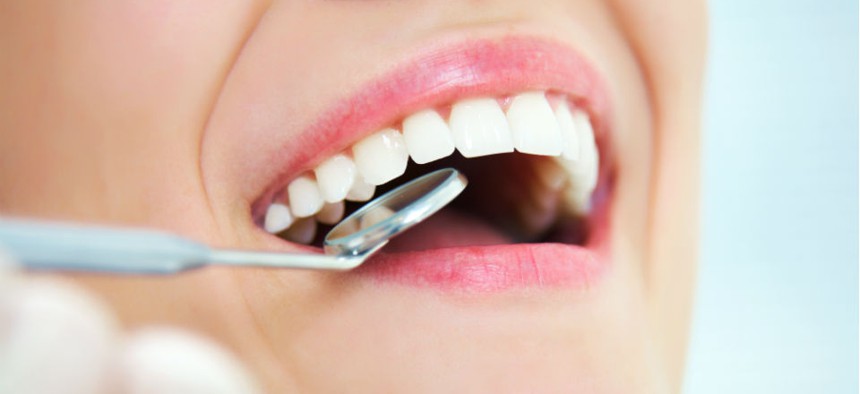
YanLev/Shutterstock.com
EPA Is Cracking Down on Dentists
Agency releases proposal to cut down on mercury that winds up in the water supply as a result of a routine procedure.
Your dentist wants you to clean your teeth. The federal government wants your dentist to clean his office.
The Environmental Protection Agency on Thursday released a proposal to cut down on the amount of mercury that winds up in the water supply as a result of a routine dental procedure.
The problem? Dentists use mercury and other heavy metals to fill cavities, but those metals can harm human health if ingested. And when dentists remove old filings or end up with more cavity-filling material than they need, mercury can go down the drain and end up in rivers and streams.
According to EPA, more than half of all mercury detected in public water treatment plants comes from discarded fillings.
So what is the agency going to do about it? EPA wants dental offices to adopt new systems that cut down on the amount of mercury and other heavy metals that wind up in the water.
Dentists have some flexibility in deciding how to comply, but the agency recommends that dental offices purchase a device that removes microscopic mercury particles from water before it flows down the drain.
If dentists don't want to buy the device, known as an amalgam separator, they can follow guidelines set out by the American Dental Association to limit mercury and other metal waste.
"This is a commonsense rule that calls for capturing mercury at a relatively low cost before it is dispersed," said Kenneth Kopocis, EPA's Office of Water deputy assistant administrator.
EPA projects that by following the proposed rules—which are not due to be finalized until next September—dentists could cut 8.8 tons of heavy metal annually from water treatment plants.
(Image via YanLev/Shutterstock.com)







